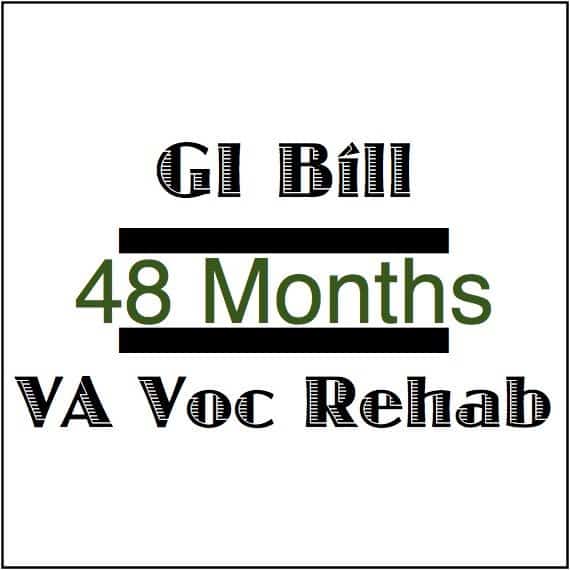As stated under Subsection 150. 01. a. iii. counseling practicum experience instead of task or internship experience shall be supervised at a ratio of one (1) hour of guidance for every single 10 (10) hours in the settings. For instance: (3-29-12) A person in a twenty (20) hour weekly job/internship who is getting one (1) hour of private guidance every week would collect one thousand (1,000) supervised hours in fifty (50) weeks to equate to the twenty to one (20/1) ratio.
( 7-1-93) An individual in a forty (40) hour weekly setting with two (2) hours of guidance weekly would accumulate the one thousand (1,000) hours at the twenty to one (20/1) guidance ratio in twenty-five (25) weeks. (7-1-93) Till July 1, 2004, the supervision should be offered by a Professional Therapist or a Clinical Professional Counselor certified by the state of IdahoSupervision by an expert therapy peer, however, might be acceptable to the Board if the peer/supervisory relationship consist of the exact same controls and procedures expected in an internship setting.
02. a.) For instance, the relationship should consist of the staffing of cases, the critiquing of therapy tapes and this supervision should be conducted in a formal, professional, consistent manner on a routinely set Drug Detox up basis." Students are accountable for guaranteeing a site supervisor is signed up with the IBOL prior to accepting a site for practicum or internship.
states and areas where licensure is intended to https://www.openlearning.com/u/ritchie-qd3f60/blog/TheFactsAboutHowToGetRehabForFreeUncovered/ ensure that you have the most updated details about licensure requirements and confirm how an ISU program aligns with those requirements. Due to the fact that requirements may alter throughout the course of your program of study, we suggest that you check licensing company requirements frequently to keep track of whether any changes may impact your licensure strategies.
Students who are preparing to specialize as clinical rehabilitation therapists will show the professional understanding and skills needed to attend to a variety of circumstances within the scientific rehab counseling context. Counselor education programs with a specialty area in clinical rehab counseling should document where each of the lettered standards listed below is covered in the curriculum.
e., physical, spiritual, sexual, occupation, social, relational, and recreational) transferable skills, functional evaluations, and job-related assistances for attaining and keeping meaningful work for individuals with disabilities function of family, social media networks, and community in the provision of services for and treatment of individuals with impairments environmental, attitudinal, and private barriers for people with impairments assistive innovation to lower or remove barriers and functional limitations legislation and federal government policy appropriate to rehab therapy cultural factors appropriate to rehabilitation therapy professional problems that affect rehabilitation counselors, including independent service provider status, professional witness status, forensic rehabilitation, and access to and practice privileges within handled care systems record keeping, 3rd party reimbursement, and other practice and management problems in rehab therapy professional organizations, preparation requirements, and credentials relevant to the practice of medical rehabilitation therapy legal and ethical factors to consider particular to scientific rehabilitation counseling PRACTICE diagnostic interviews, psychological status evaluations, sign stocks, psychoeducational and character evaluations, biopsychosocial histories, assessments for treatment preparation, and evaluations for assistive innovation requires profession- and job-related assessments, consisting of task analysis, work website modification, transferrable skills analysis, job readiness, and work hardening strategies to promote for individuals with impairments strategies for interfacing with medical and allied health experts, consisting of interdisciplinary treatment groups strategies to seek advice from and educate employers, teachers, and families regarding accessibility, Americans with Disabilities Act compliance, and accommodations.
Rehabilitation counseling is a profession that holistically uses counseling abilities to assist individuals with psychiatric, developmental, cognitive, emotional, or handicaps to attain their maximum level of self-reliance, integration, and involvement in the neighborhood and the world of work in accordance with each individual's personal objectives, career aspirations, and perception of quality of life.
The smart Trick of Rehab What Do You Want From Me That Nobody is Talking About
Rehabilitation counseling includes eliminating attitudinal and ecological barriers through making use of counseling innovation, advocacy, and assistance. Psychological health counselors provide a variety of services that attend to the mental and psychological wellness of those they serve. The primary goal of a mental health counselor is to direct people towards reaching their psychological health goals and keeping ideal levels of psychological wellness.
In all applications, psychological health therapists are committed to producing a safe, helpful environment for customers to share their thoughts and feelings openly. According to the Bureau of Labor Stats, both rehab therapy and mental health counseling have promising, faster-than-average task outlooks. The projected percent change in employment from 2016 to 2026 is 13% for rehab therapists and 23% for psychological health counselors.

For trainees who prepare to pursue a profession in mental health counseling, the rehab curriculum presents them to accessing community resources, supplying vocational assistance, and embracing a holistic view of their customers' lives. For those who mean to work in rehabilitation therapy, the psychological health component of the program teaches techniques that will allow them to construct effective therapeutic relationships and link mentally with their clients.
There are no particular prerequisite courses or requirements for the program (how much is drug rehab). Individuals who pursue therapy professions normally have an ability towards helping others and possess an awareness of the experiences that individuals with specials needs face. They are committed to creating chances for individuals with disabilities to enhance working and pursue goals for work and adult life in the community.
Effective prospects have the ability to utilize understanding to produce chances for people with impairments; are non-judgmental and compassionate, and hold to ethical suitables that accommodate specific needs. Being self-aware, arranged and a hard worker are also handy qualities. The common size of an incoming class is 25 students. There are 5 irreversible professors and 6 adjunct faculty.
A large component of the program centers around educating clients about keeping a healthy life, so the very same state of mind is reached trainees. Courses include different components including substantial jobs, immersive experiences, literature reviews, collective assignments, interprofessional experiences, and, obviously, examinations. All elements of the curriculum are purposefully included to teach particular abilities as designated by CORE and CACREP.
Yes, the internship consists of a full-time, 40 hours-per-week placement at a clinical site that matches the student's interests throughout the spring semester of the second year. In addition, trainees are participated in a practicum during the fall semester of their 2nd year in which they work 8 to 10 hours each week at a designated therapy site as an introduction to real-world counseling experience.

The Ultimate Guide To How Many Days Will Medicare Pay For Rehab
The successful completion and defense of a master's thesis, paper, or project is needed as partial fulfillment of the requirements for graduation. The master's thesis is an extensive research study project. If a student picks to finish a master's thesis, they are needed to comply with the Graduate School thesis requirements, timelines, and guidelines.
The master's paper is a thorough analysis or substantial evaluation of the literature Go to the website to answer particular research study questions. The master's paper option does not require the trainee to conduct their own research. The master's task is an opportunity for trainees to develop an item that might be utilized in the real life (such as a brand-new treatment handbook or intervention strategy).